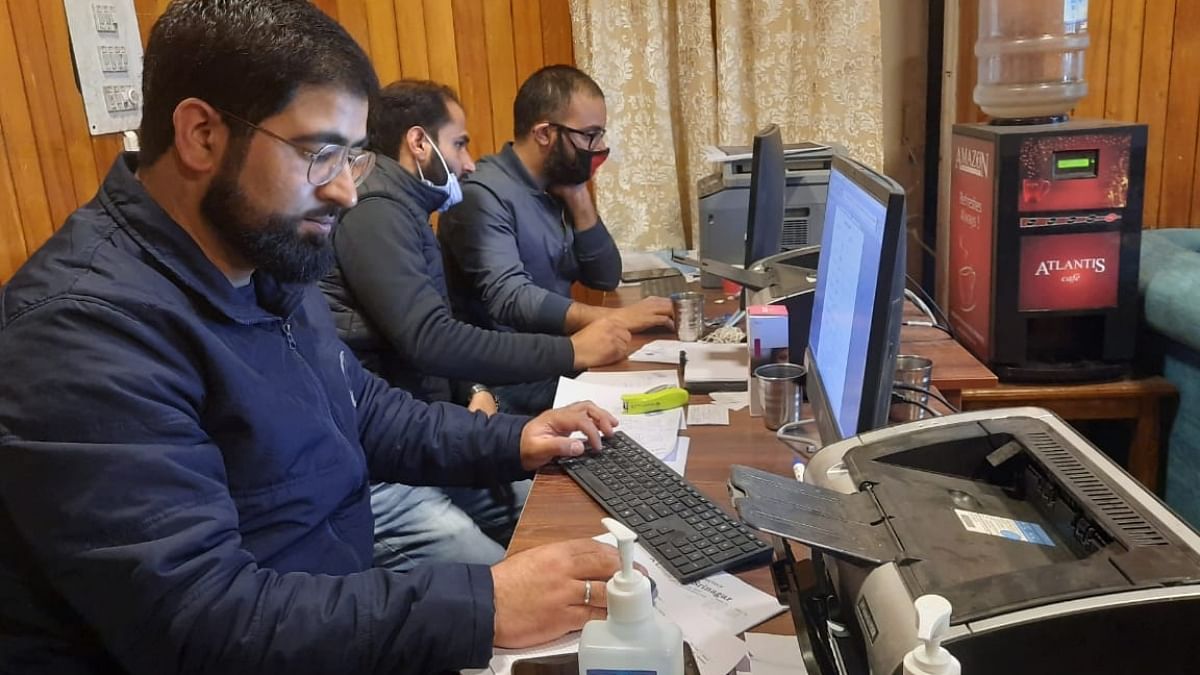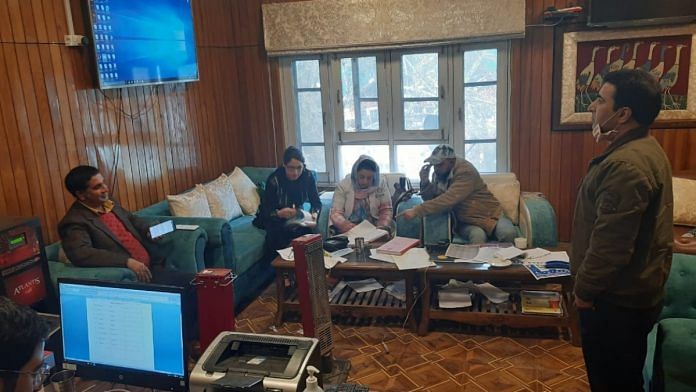Srinagar: The Jammu and Kashmir administration has received between 400-500 calls from residents in Srinagar ever since the first positive case of COVID-19 was reported from Srinagar last week, informing them about individuals returning from abroad and other states who are allegedly not following the safety norms.
Although borders of the union territory have now been sealed and air travel in and out of the country has been suspended, authorities in Srinagar face a mammoth task to trace individuals concealing their travel histories.
Officials told ThePrint that prior to the sealing order, the office of Srinagar District Magistrate (DM) Shahid Choudhary received more than 70 calls every day ever since last week when the first positive case was reported.
The calls were made to the 24×7 control room, which was set up by the DM, specially to trace/track down residents who have returned from abroad or other parts of India.
Officials said the past week saw 500-600 people returning to Kashmir every day via flights and road routes and out of this figure, only 30 per cent reported their travel history and got themselves checked.
The control room received around 400-500 calls so far about such cases, officials added.
So far, four confirmed cases, two of which were reported Tuesday, have been detected in Kashmir and three in Jammu.
Officials said the first COVID-19 patient detected in Srinagar is being treated and that he has responded to the medicines being given.
These medicines are not being made public, fearing that people would buy them to self-treat, which is not advisable, officials added.

Also read: Doctors in Kashmir seek accommodation as they ‘don’t want to carry coronavirus back home’
Over 50 people with travel history traced
In Srinagar, a team of government officials, reporting to Srinagar DM and headed by Srinagar Additional Deputy Commissioner Masarat Hashim, has been directed to track movement of people, who have returned from other countries/states.
So far, the team traced over 50 “pick ups” (those with travel history) and have put all of them under quarantine.
The team of officials, medical experts and police, identified these “pick ups” after receiving tip-offs. They then went to those areas of “new arrivals” (those who came from abroad or other states).
The Srinagar administration has also made a map, which has been exclusively accessed by ThePrint, that shows areas with most and least number of people under quarantine. The map shows some areas in the southern parts of Srinagar housing the most number of people under quarantine.
ThePrint is not releasing the map due to concerns over law and order situation.
“I cannot stress it enough that people who have come from outside must report themselves if they have symptoms. We are here for them. By hiding, they only risk their lives and their loved ones. We are in this fight together,” DM Choudhary said.
“We have been working 24×7. The control room is just one of the hundreds of efforts we have made to beat this disease. The thing that we need most is people’s cooperation,” Choudhary added.
‘People are cooperating’
Additional Deputy Commissioner Hashim told ThePrint that, initially, callers would provide “sketchy” information about those who returned from outside but now that has changed.
The change came specially after the administration issued a public appeal, asking people to bring cases of those with travel history to their attention.
“Today (Tuesday), we received around 150 calls. People are cooperating,” Hashim told ThePrint.
According to Hashim, initially people making calls would feel guilty and not give the exact location.
“There was one instance where we were told that a person from Italy has arrived in an area. The caller didn’t give his name but the name of his brother. But we managed to track down the individual,” he said.
“In a second instance, we were given the number of not the person who came from outside, but of his mother who switched off the phone. But we managed to trace the exact location where the last call was made. Now the inputs are more potent, we even got WhatsApp coordinates,” he added.
A senior police officer said people hesitate to approach the authorities as there is a “stigma” attached to those who work for or with officials dealing with law and order situation or militancy.
“This thought is ingrained. But the situation is different now. One infected person can infect dozens. Either the travellers come forward or people around them move beyond stigma and cooperate with the establishment,” said the officer.
“By bringing forward such cases, you don’t become informers, you are protecting your community from the infection. The travellers too are not enemies, but they need to be smart at this moment,” added the officer.
Dr Rabbanie, a public health specialist currently engaged in fighting COVID-19, explained why those with travel history are reluctant to report about it.
“The first thing that they think is that the quarantine facility might not be up to the mark. Second, they think they might be infected in the facilities. Third reason is available literature about COVID-19, which states that the symptoms of the virus could be mild in younger people and is self-treatable,” he said.
Also read: J&K to convert 11 major hospitals into coronavirus sanatoriums




It is corona explosion room insted